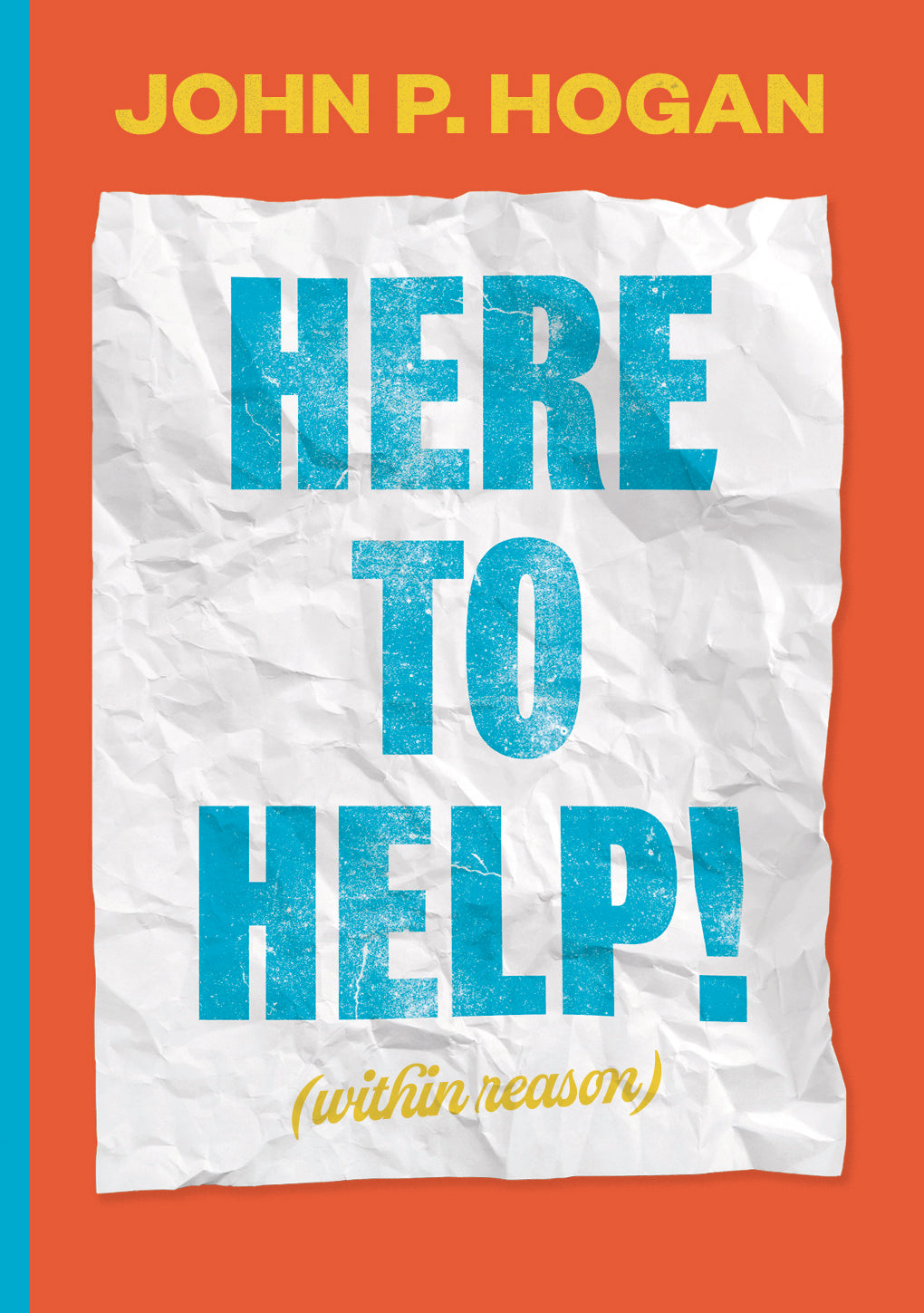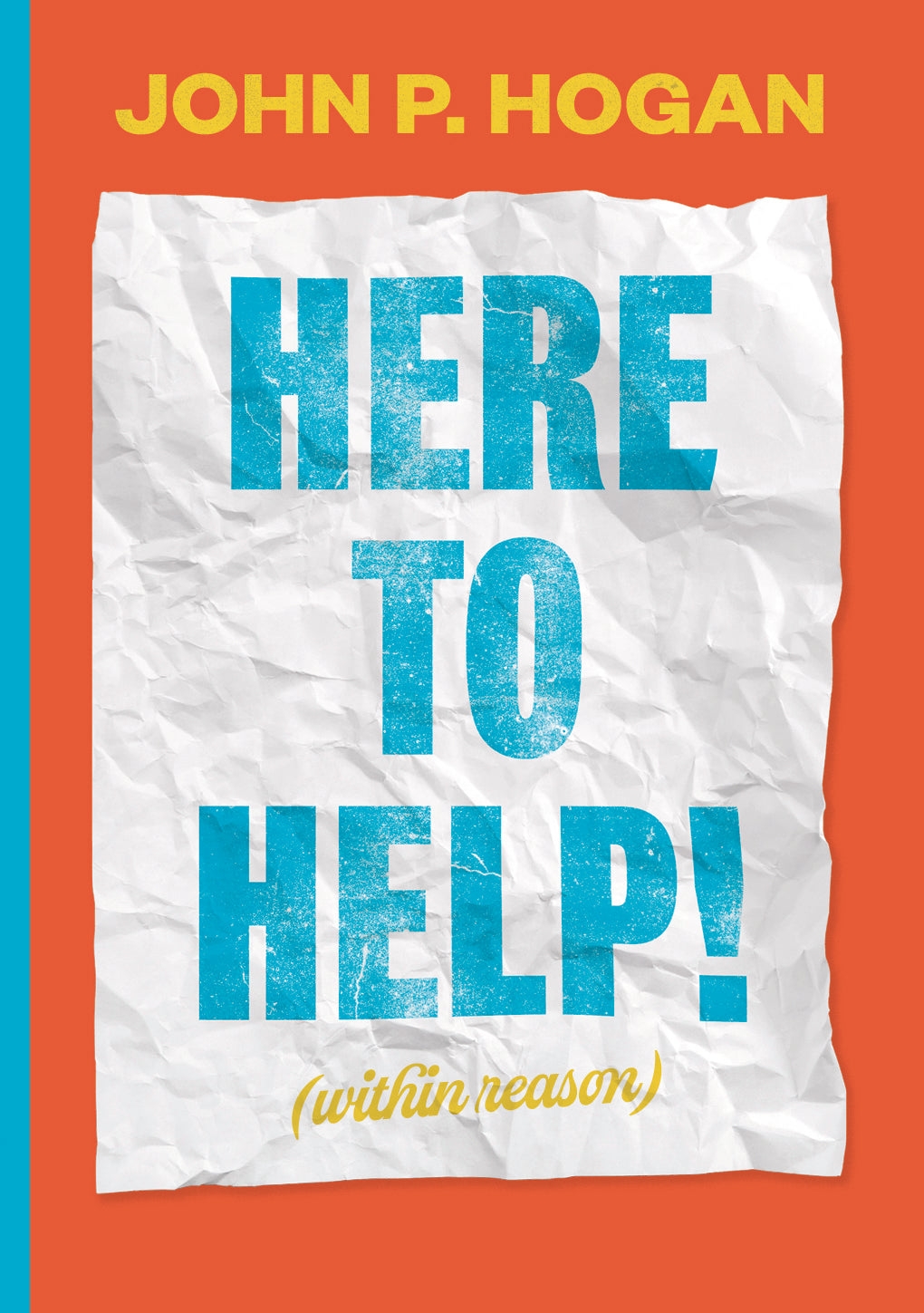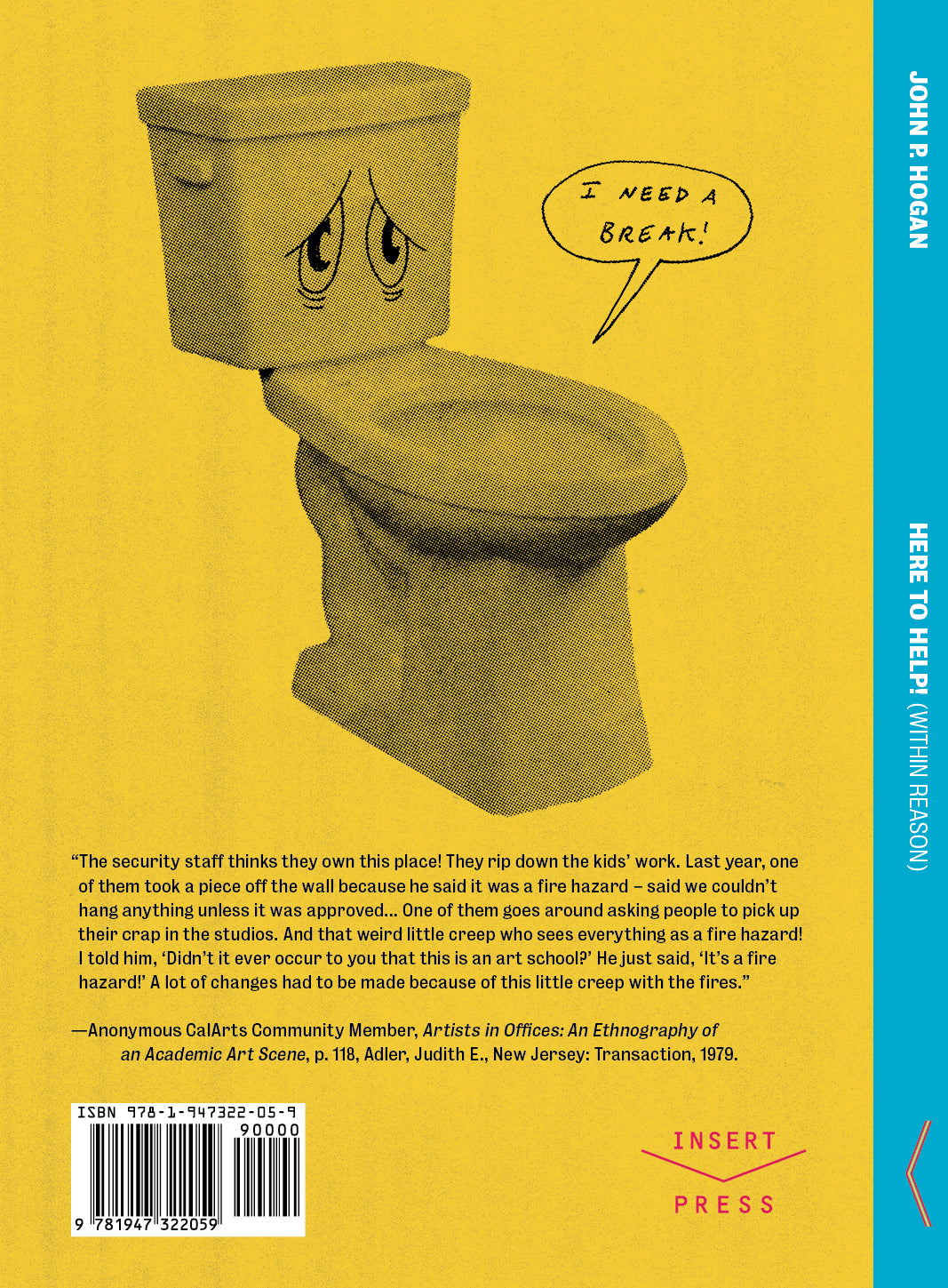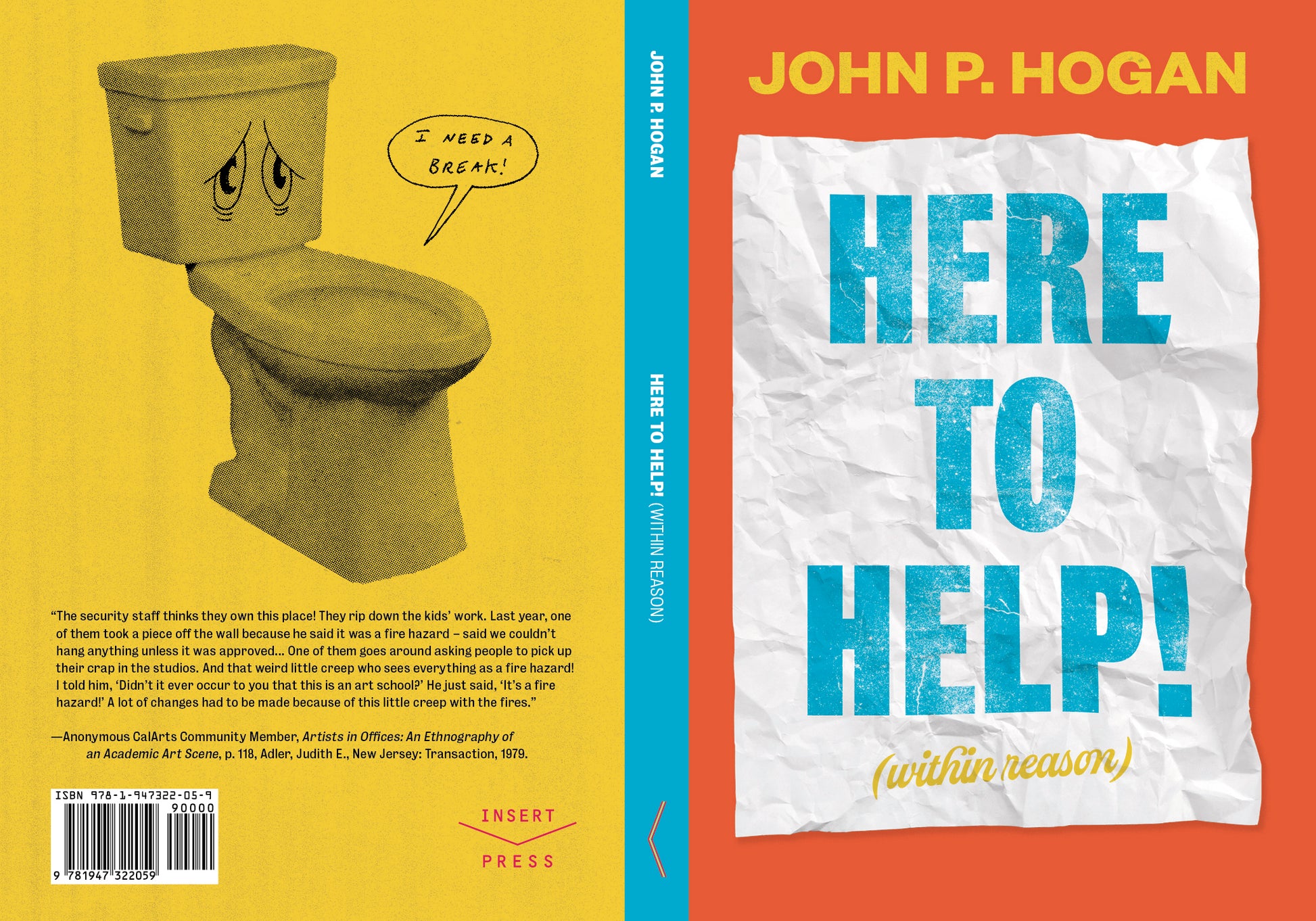Here To Help!
Here To Help!
(within reason)
John P. Hogan
Couldn't load pickup availability
Paperback, full color, 128 pages
ISBN: 978-1-947322-05-9
LCCN: 2022934863
Cover price: $32.00
In the mid-2000s, despite its reputation for being a vanguard of the visual arts, CalArts still used one of the most analogue forms of public announcement: flyers. In Here to Help! (within reason), these flyers form a tense, though often hilarious, conversation between bureaucratic university offices and a highly imaginative student body, who came together in one of America's most creative institutions. Here to Help includes essays by Molly Jo Shea, Michael Ned Holte, and the editor, John P. Hogan.
Concept by John P. Hogan and Dameon Waggoner.
Cover and layout design by Dameon Waggoner.
Purchase Here to Help! (within reason) acrylic pin.
Purchase limited edition print by John P. Hogan, "The Unholy Den".






